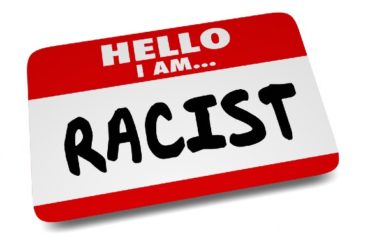
A quintet of University of Massachusetts Amherst researchers claim racism is behind efforts to dismantle DEI — diversity, equity, and Inclusion — programs in education and elsewhere.
Writing in The Conversation and citing sources such as NPR, MSNBC, and Axios, the academics begin by highlighting “right-wing” activists like Chris Rufo who had “helped force” the resignation of former Harvard president Claudine Gay.
Some activists even had dared to assert Gay got her position in the first place due to higher ed’s obsession with DEI. (Curiously, the scholars make no mention of Gay’s actual plagiarism.)
While the researchers concede those who still believe in colorblindness may not necessarily be racist (such as Utah Governor Spencer Cox), they choose to highlight silly DEI conspiracies like the recent destruction of Baltimore’s Francis Scott Key Bridge and the election of the city’s mayor. (Never mind the mayor’s subsequent ominous comments).
In their January poll, the researchers “sought to identify what influence racism may have” on DEI programs, and found that people with “negative racial attitudes” were less likely to support them.
They point out “negative racial attitudes” is a term “used by scholars of public opinion to characterize respondents who hold prejudicial, stereotypical or racist views of people of color.”
Note the “used by scholars of public opinion” as the poll’s measure of “negative racial attitudes” is as follows: folks who believe “racial problems are rare,” those not “angry that racism exists,” and those who don’t think “white people have advantages.”
MORE: Univ. nursing program gets ‘racial healing’ grant for DEI curriculum
With just one exception, no majority of these three “racially negative” groups said that professions such as police, teachers, the military, and medical professionals should have to endure DEI trainings.
Non-academics may ponder how believing that “racial problems are rare” is a negative in terms of racial attitudes; perhaps many believe social media has led to the perception that race issues are (a lot) worse than they actually are? Not to mention, why is not being “angry” about racism a negative? Maybe people consider “concerned” or “indifferent” a better descriptor.
As for so-called white privilege, perhaps those who shrugged at white “advantages” in the poll believe advantages for blacks and other minorities effectively have offset those of whites. Why would that be a negative?
Of further significance, the UMass pollsters don’t even concretely define what “DEI” means, nor do they seriously delve into the reasons why individuals like Chris Rufo are battling so strenuously against it. This may be a good starting point.
MORE: Researcher exposes harms of DEI trainings after colleague’s suicide
IMAGE: iQoncept/Shutterstock.com
Like The College Fix on Facebook / Follow us on Twitter






Please join the conversation about our stories on Facebook, Twitter, Instagram, Reddit, MeWe, Rumble, Gab, Minds and Gettr.